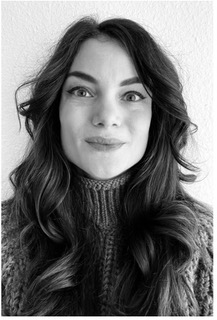Contact
Email:
pierre.marine@hotmail.com
Short project description
Hidden Architects of Postwar Europe: How the Atlantic Administrative Elites Shaped European Cooperation
This project examines the pivotal role of Atlantic Administrative Elites in shaping the Organization for European Economic Cooperation (OEEC), one of the most influential postwar international organizations. Situated at the intersection of International Administrative History and New Diplomatic History, the study uses prosopography to analyze the individuals who formed the core of the OEEC, aligning with recent historiographical approaches to the study of international organizations. Through extensive archival research combined with an analysis of private and professional sources, it provides a nuanced understanding of the institutional frameworks that structured postwar European cooperation.
Although the OEEC eventually gave way to OECD, the cooperative methods it pioneered endured far beyond the organization’s formal existence. The OEEC had demonstrated remarkable success in fostering international cooperation under challenging conditions, a success that continued to resonate as new models of collaboration often draw on its example. The postwar European environment was characterized by a dense network of international organizations, linked through significant personnel mobility. This interconnectedness fostered the diffusion of administrative methods and bureaucratic expertise across borders and institutions. Central to these developments was a relatively small but influential group of Atlantic Economic Elites who navigated complex political and economic priorities, demonstrating how postwar international cooperation was shaped by personal and professional networks rather than isolated organizations.
This project argues that the legacy of the OEEC lived on through its personnel, who carried their expertise and cooperative practices into other international arenas. Drawing on a wide range of sources, including memoirs, biographies, correspondence, and official documents, the research uncovers the extensive networks of diplomats, experts, and civil servants who sustained the OEEC’s influence. Building on archival work, this approach enhances our understanding of the enduring impact of discontinued international bureaucracies on the development of European cooperation.
Short Bio
Marine Pierre was a postdoctoral researcher at the Saxo Institute at the University of Copenhagen from 2023 to 2024. She was part of the Autonomy and Expertise in International Administrations, 1940s–1970s project, which was led by Professor Haakon A. Ikonomou. She holds a PhD in Modern History, jointly granted by the University of Geneva and the University of Paris 1 Panthéon-Sorbonne. Her dissertation examined the relationship between the European Parliament and Turkey between 1979 and 2009. It focused on how religion was used for political purposes and the role of political narratives in shaping Europe-Turkey relations.
Her current research focuses on the socio-administrative history of the OECD/OEEC and its interactions with other international organizations in the late 1940s and 1950s. She is particularly interested in how international administrations operated at the intersection of expertise, diplomacy, and governance, and how informal and formal actors shaped global institutions.
Her work draws on methods from international history, prosopography and biographical approach and the history of diplomacy and bureaucracy.
Her broader research interests include European integration, international relations, diplomatic history, international organizations, and international bureaucracies. She has conducted archival research in the United States and across Europe.


